Wisconsin Republicans Proceed with their 2021 Budget, Setting Up Evers Veto Decision
By a mostly party-line vote, the Assembly passed a biennial budget that removed most priorities previously promoted by the governor, who pending its passage in the state Senate, must decide to approve it, veto it entirely or make strategic line-item vetoes.
By Zac Schultz
June 30, 2021
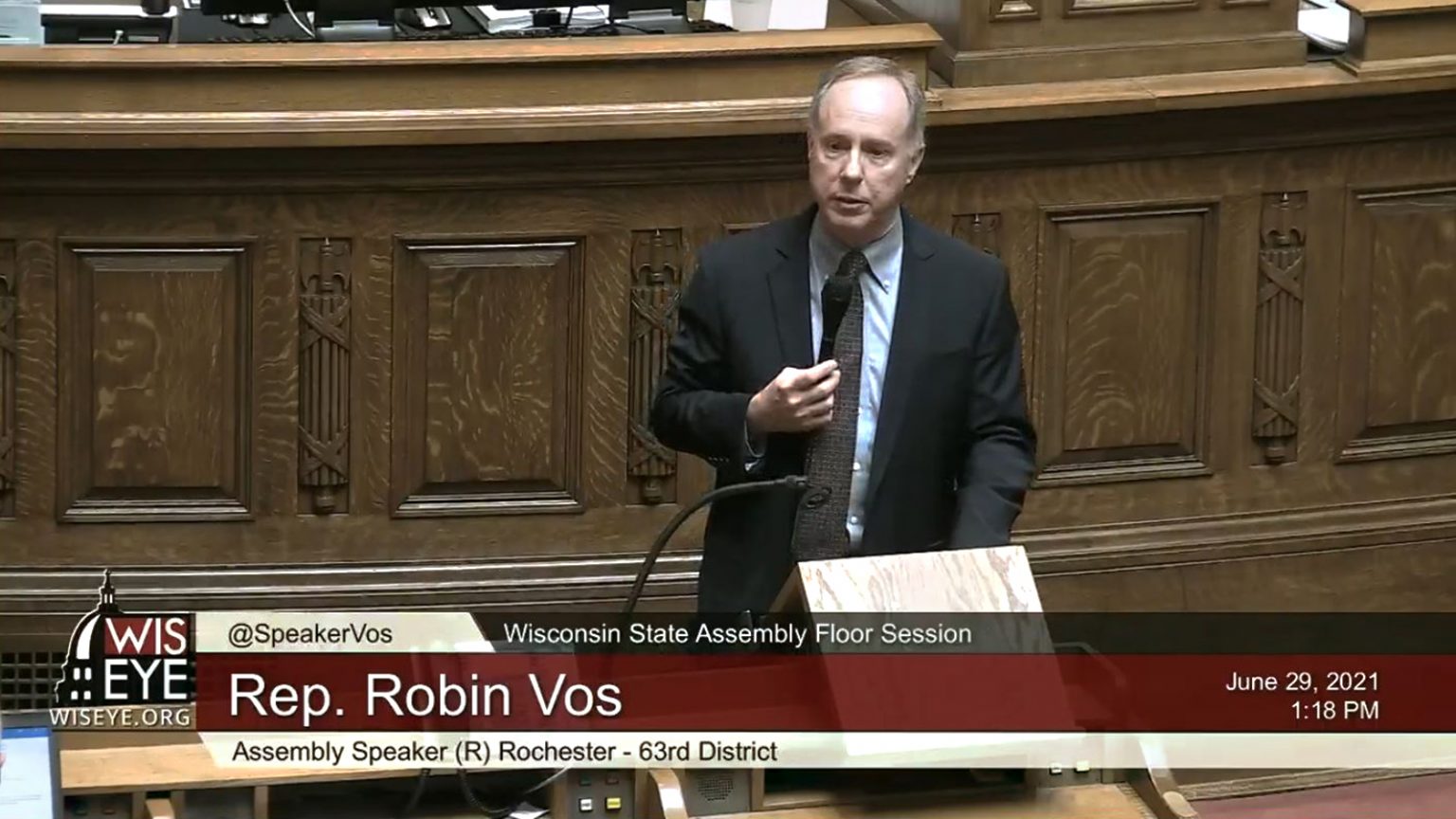
Wisconsin Assembly Speaker Robin Vos, R-Rochester, urges state representatives to pass the 2021-23 budget assembled by the Joint Finance Committee during a floor session on June 29, 2021. (Credit: Courtesy of WisconsinEye)
The Wisconsin Assembly approved its 2021-23 state budget Tuesday night after nine hours of debate. The bill passed by a vote of 64-34, with all Republicans and four Democrats voting for and the remaining Democrats voting against. The bill now goes to the state Senate, where the Republican majority is expected to pass the bill Wednesday.
Assembly Speaker Robin Vos, R-Rochester, says the final budget is very different from the one laid out by Gov. Tony Evers, a Democrat.
“He laid out a vision that is dramatically different from the one you’re going to see today,” Vos said. “His budget had dramatic tax increases, it had dramatic spending increases, expansions of welfare, legalizing marijuana, all kinds of social policy issues that the Joint Finance Committee took out of the budget and re-configured to make sure this reflects the priorities of all of Wisconsin, not just liberal Democrats.”
Assembly Minority Leader Gordon Hintz, D-Oshkosh, said the Republican budget missed a chance to invest in the long term of the state.
“We had an opportunity to address generational needs and change the trajectory of our state for the better, with an influx of resources and jobs we had the ability to do that but Republicans are throwing this opportunity away,” Hintz said.
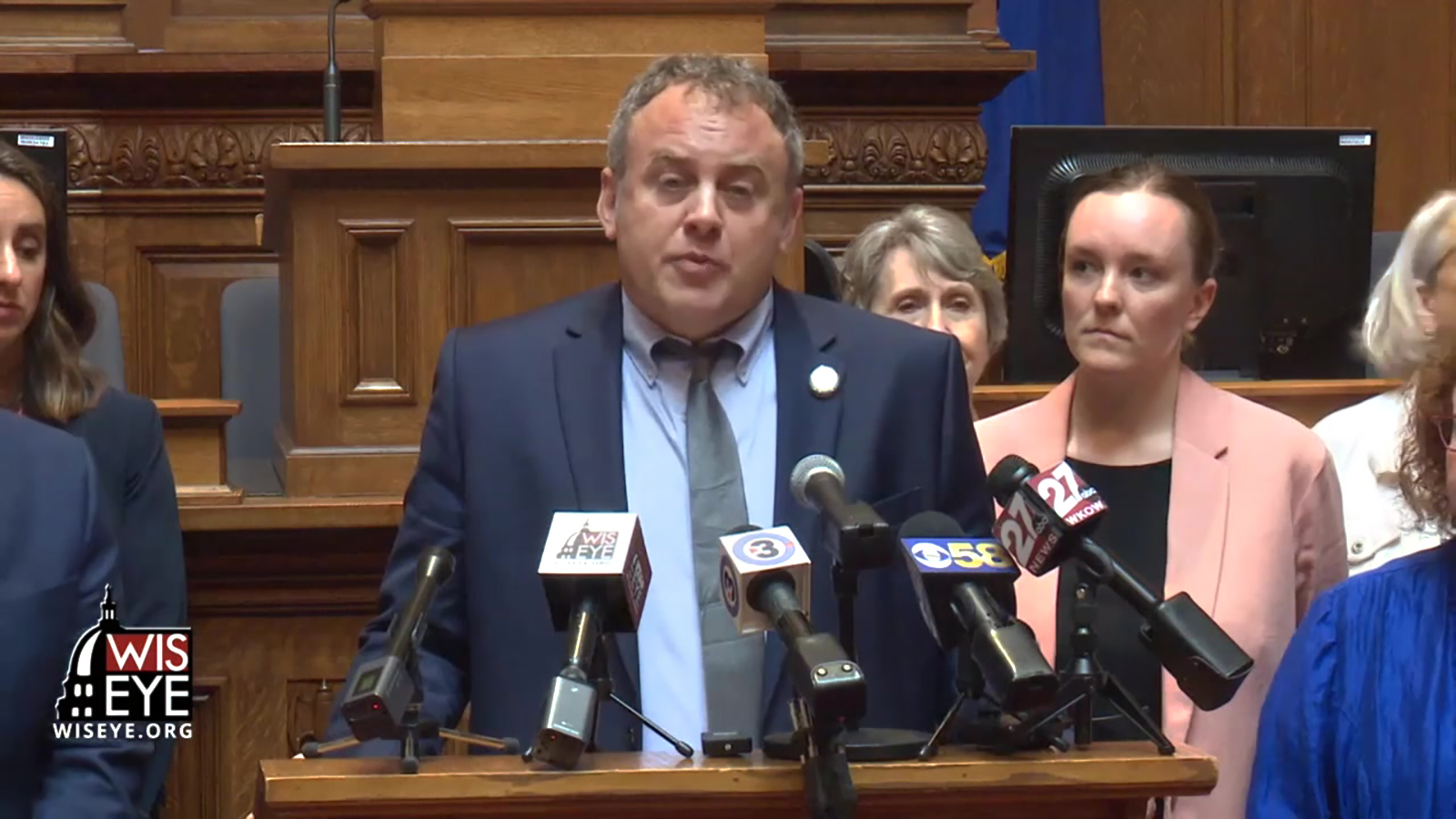
Wisconsin Assembly Minority Leader Gordon Hintz, D-Oshkosh, criticizes the 2021-23 budget passed by the Republican majority in a press conference in the Assembly chambers on June 29, 2021. (Credit: Courtesy of WisconsinEye)
Most of the Assembly debate Tuesday centered on a series of amendments introduced by Democrats to change the budget to look more like the version originally introduced by Evers in February. Republicans in control of the Joint Finance Committee re-wrote Evers’ budget over the course of several months. They eliminated his proposal to expand Medicaid and capture additional federal dollars that would come with that expansion. Republicans also rejected his proposal to increase funding for local governments and schools.
Instead, Republican budget-writers focused most of their attention on the $5.2 billion in federal pandemic aid coming into Wisconsin as general aid to the state, raising state spending only to the minimum amount needed to bring in that money.
Rep. Mark Born, R-Beaver Dam, is co-chair of the Joint Finance Committee.
“We are passing a budget that keeps spending in check, cuts bureaucracy, funds Wisconsin’s priorities and delivers $3.4 billion in tax relief to Wisconsin individuals, families and businesses,” said Born.
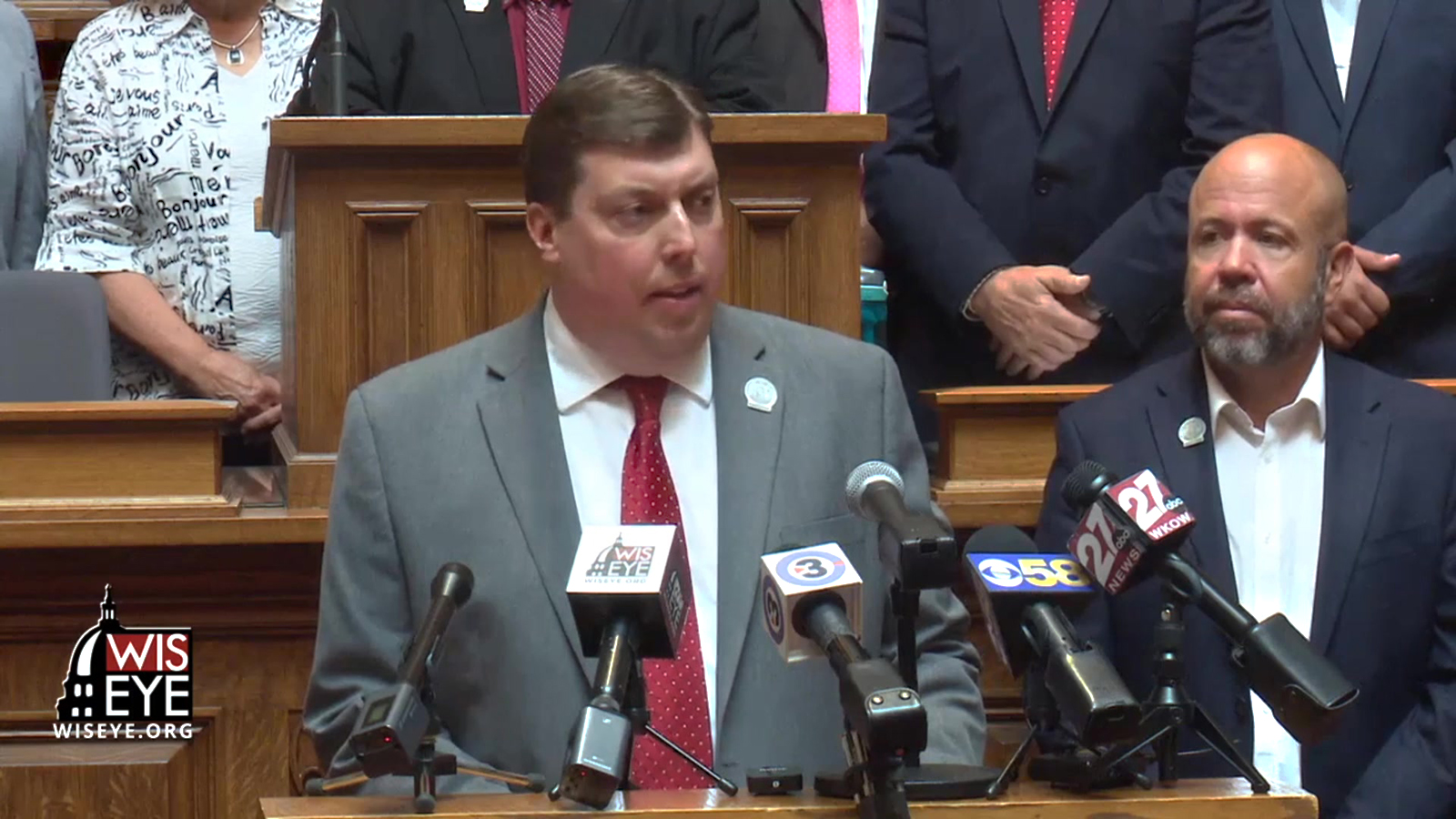
State Rep. Mark Born, R-Beaver Dam, a co-chair of the Wisconsin Legislature’s budget-writing committee, praised the Assembly’s passage of a 2021-23 budget bill at a press conference in the Assembly chambers on June 29, 2021. (Credit: Courtesy of WisconsinEye)
Republicans highlighted $3.4 billion in tax cuts included in the budget, which lowers both income tax and property tax levels. The property tax reduction comes disguised as aid for public schools because the increased state money for schools also requires them to reduce their tax levies by a similar amount — meaning the extra state money reduces taxes but doesn’t increase funding for education.
Democratic Rep. Greta Neubauer, D, Racine criticized this measure.
“The money they quote-unquote invested in education to meet maintenance of effort, won’t actually make it to the classrooms,” said Neubauer. “They will tell you they are making historic investments in schools, but the majority of their investment is functionally a property tax cut, not an investment in our kids.”
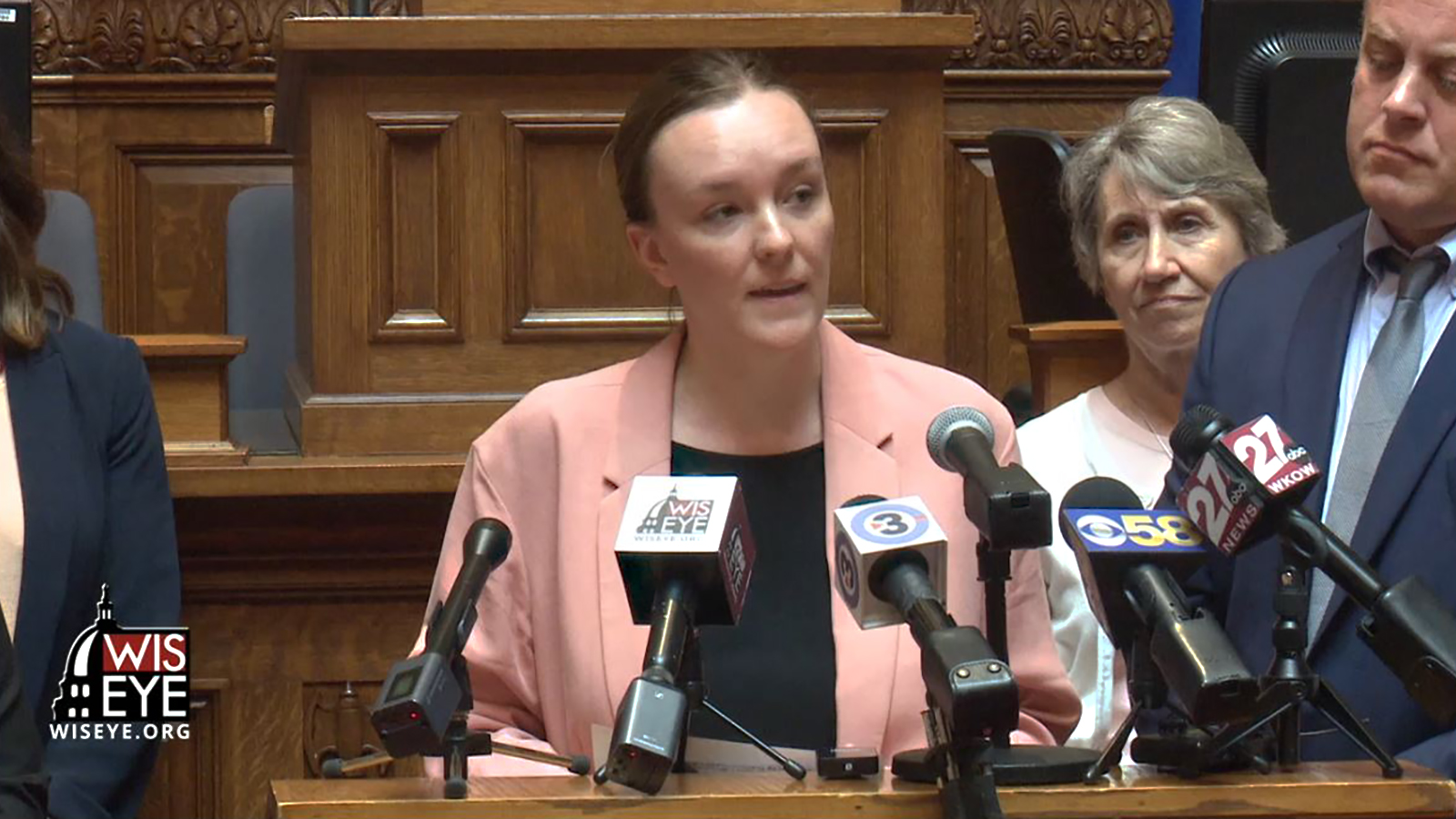
State Rep. Greta Neubauer, D-Racine, spoke to education funding in the 2021-23 budget passed by the Republican majority at a press conference in the Assembly chambers on June 29, 2021. (Credit: Courtesy of WisconsinEye)
Another tax cut that passed alongside the state budget would eliminate the personal property tax, which is a tax on the business equipment owned by companies. (This tax is different from the standard property tax that homeowners and businesses pay.) The budget would backfill the loss of those tax dollars for local governments with funding from state dollars.
Vos said that tax is outdated.
“The idea is you buy a piece of equipment and then you pay property taxes on that year after year after year,” Vos said. “That is an outdated system that is not used in most of the country, and I am super excited that Wisconsin will join the group of states that says when you buy a piece of equipment to invest in your business, you pay the sales tax like everybody else does and then you stop.”
Assuming the budget passes the Senate, it will be up to Evers to decide if he vetoes the entire document or just uses his partial veto authority to reshape the budget. The governor has not ruled out a complete veto, but Republicans have said if that happens, they are not likely to come back to the table and pass a new version. Instead, the state would continue under the 2019-21 budget until the next budget is passed.
The non-partisan Legislative Fiscal Bureau issued an analysis that notes if no new budget is passed, Wisconsin would not meet the federal standards for maintenance of effort for education spending, thereby causing schools to lose out on $2.2 billion.
Hintz said the Republican budget was designed to force Evers into tough decisions in the lead up to his re-election campaign in 2022.
“The only explanation for how the Republicans crafted their budget,” Hintz said, “in stark contrast to Gov. Evers, is that the biggest priority, as it has been from when Gov. Evers was elected — from the lame-duck session to other things — their goal is to try to do everything possible to obstruct, oppose and undermine Gov. Evers.”
 Passport
Passport





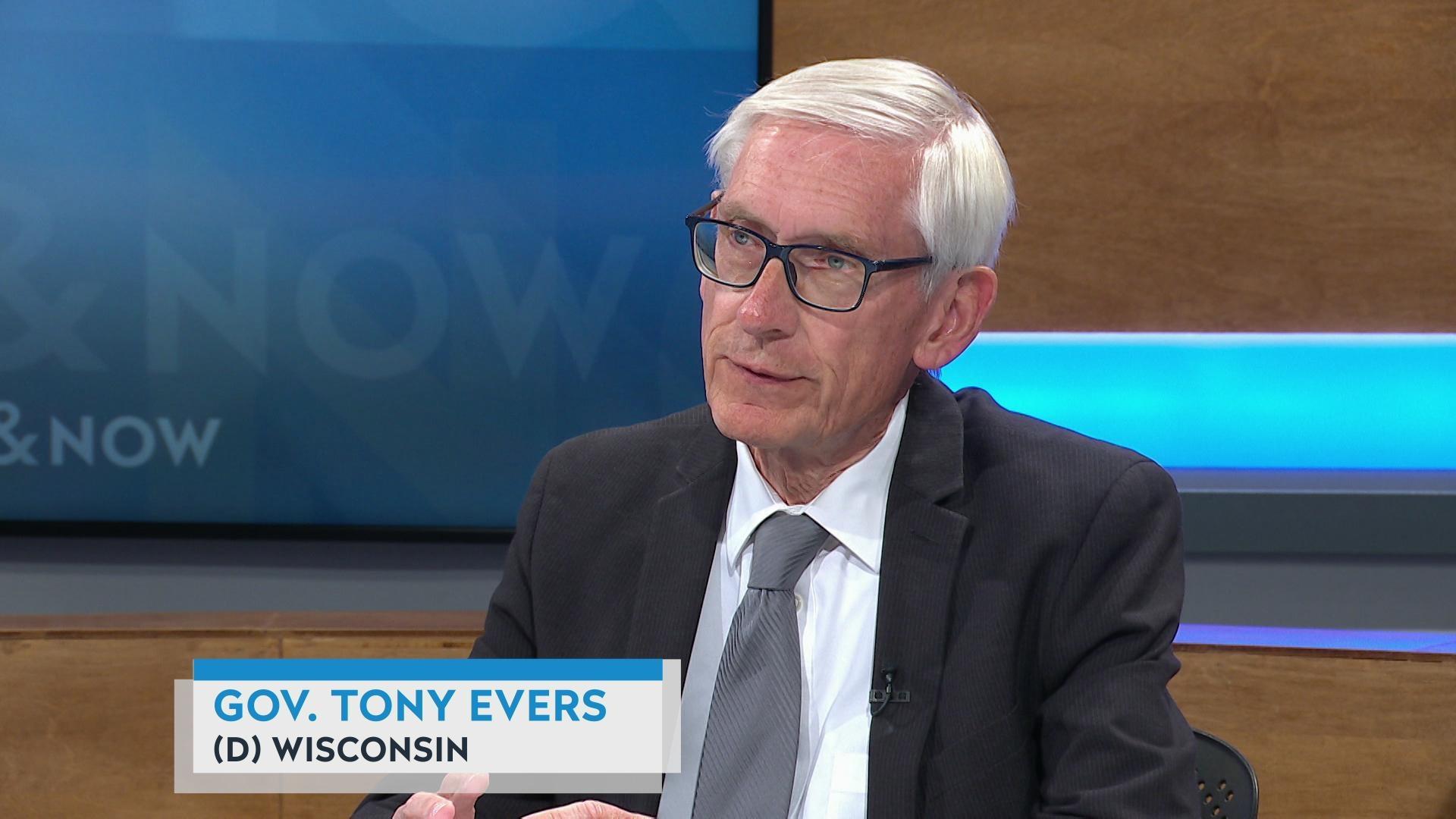





Follow Us